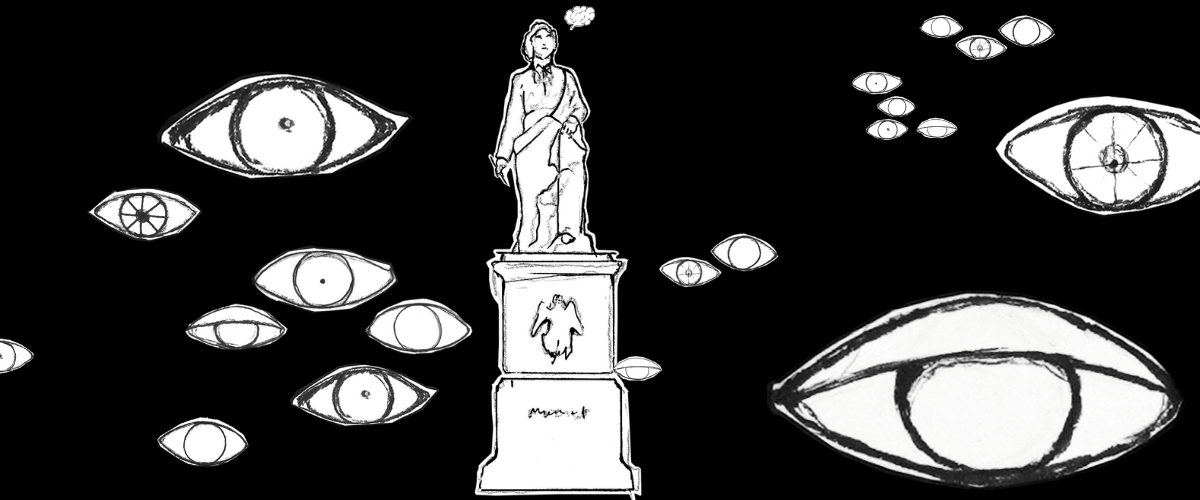“The way we organize the arts in the West needs to be rebuilt from the ground up”
Hassan Mahamdallie in conversation with Anita Moser and Ielizaveta Oliinyk
Why do I emphasize autonomy so much? I think it’s problematic for the reform of the arts that we’re talking about in relation to diversity or equality, to rely solely on initiatives that are channelled through the existing structures. Too often individual artists who don’t have much power find themselves negotiating with powerful institutions. Often the unique and radical essence of their idea begins to be assimilated into the dominant aesthetics, values and tastes concerns of the institutions. The artist often loses their original ‘edge’ as they go through this flattening process. That’s the role of the centre: to assimilate. The centre has the ability to attract the most radical, extraordinary, innovative practices like a magnet or a centrifuge, but can only absorb and commodify it by blunting its original force – what I call a process of defanging. That’s why there have to be independent spaces outside of the centre where ideas are developed to their full potential, where artists can make whatever they want without facing the pressure to dilute their vision. That requires creating permanent funded spaces at the margins, rather than always facing the prospect of artists wrestling with the institutions at the centre.
I’m not calling for a parallel system, like an apartheid system, where we let the institutions off the hook and just do our little thing at the edges. But I think we should have our own stages which would in part create challenges to the status quo. We need multiple centres of power. And I think in one sense, it reflects the world. The world is no longer unipolar. We have a world which has many centres of power, for good or evil, as we know at the moment. We also need to overcome our Eurocentric outlook. I despair that virtually no one in Europe has any knowledge of the development in the arts in the countries and regions of Africa. Only 1% of cultural production in Africa is ever shown anywhere else. That’s a whole continent which we in Europe are ignorant of.
How do you perceive Austria or Salzburg as a cultural location? What comes to your mind in relation to diversity in the cultural sector?
I think Austria has lots of potential. It obviously has its own strong cultural and arts traditions that express the development of its national identity and location in the shifting sands of the European project. I don’t want to make sweeping generalizations about something which I don’t really know about, but just from talking to people, I think that the conversations you’re having now are similar to the conversations we have been having in the UK for some time. And therefore there is a road to be travelled. But things are never the same; history doesn’t repeat itself exactly. Approaches such as the Creative Case have to be adapted locally and nationally in relation to the particular context. My experience has told me is that those who promise slow change ultimately deliver no change. To make real progress, you need people who are going to lead the way and get momentum going. And for things to really change in the arts, you have to make some leaps forward, whether it’s intellectually or organizationally or in wider society.
Changes should happen from below but it’s always useful to have individuals with power who have the courage to make a leap. They may think they’re leaping into the unknown, but that’s not true, because those pushing change understand exactly where they’re aiming for. It needs determination from the grassroots, and I think it needs some leadership from the top. And then, once that ball is rolling, all sorts of overdue arguments and discussions will begin to emerge into open debate.
My keynote speech and the panel discussion took place in that great hall of the Belvedere Museum, but the workshops of the World Café run by D/Arts were held in Belvedere 21, a modern venue. I was thinking: Why don’t you hand over Belvedere 21 to grassroots artists, to a collective of young people so, to run and do whatever they want to do and see what happens? That’s what I mean by a leap.
Hassan Mahamdallie, Anita Moser, Ielizaveta Oliinyk ( 2022): “The way we organize the arts in the West needs to be rebuilt from the ground up” . Hassan Mahamdallie in conversation with Anita Moser and Ielizaveta Oliinyk. In: p/art/icipate – Kultur aktiv gestalten # 13 , https://www.p-art-icipate.net/the-way-we-organize-the-arts/


 Artikel drucken
Artikel drucken Literaturverzeichnis
Literaturverzeichnis